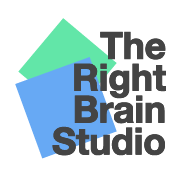How to Build a Compelling Personal Brand: Mental Health and the Challenge of Objectivity
 Part 3 of 3
Part 3 of 3
If you missed it:
Part 1 focused on the importance of understanding yourself and your purpose.
Part 2 focused on the need to define and communicate your brand personality.
If only we could see ourselves, for better or worse, as we are. The therapists, career coaches and self-help gurus would all be out of business if we could.
This may be the biggest hurdle in personal branding. It’s hard enough to be objective when you’re working full-time on any brand. First, there’s a huge temptation to overestimate the importance of your brand in people’s lives. Sure, if you’re the brand manager on Ragu spaghetti sauce, you’re going to be obsessed. It’s your work, what you think about it every day. How many times a day do other people think of spaghetti sauce, and when they do, how deeply to they think or care about it?
There’s also the temptation to see the brand from only a positive perspective, overestimating the important of factual claims and minimizing the implications of product/service flaws or consumer perceptions. “Ragu is made from tomatoes that are of a higher quality than the craft sauce brands!” Like that matters to people who just paid triple for that jar of sauce at Whole Foods or Eataly whether it’s true or not.
While we may constantly obsess over how people perceive us, especially those we work with or would like to work with, I find that job-seekers and others in need of strong personal brands become so overwhelmed with fear – some with an added does of low self-esteem thrown in for good measure, that that they completely underestimate their potential role in the lives of their targets and their own self-importance.
“Me, save the world? Change people’s lives? Contribute more to my company’s business than someone else? No…I’m just a regular person, a hard worker who got good grades.”
We don’t want to set ourselves up for failure, so telling people not to expect anything more than average from you sets more “realistic” ice expectations. You surely won’t disappoint anyone if your take this route, but you probably won’t get a job, either.
You have to set the bar high for yourself. The promises you make are not just to your potential employer. They are promises you make to yourself. You can change the world, or at least your small part of it. No one is expecting “world peace,” but promises can be made that only you can fulfill in your own way. Again, something that could only come from your unique background, skill set, aspirations and personality.
The generic is your worst enemy. Forget about feeling safe or hiding behind some bland, vanilla claim. You can’t feel safe and differentiate yourself from everyone else at the same time.
On to Execution
Strategy is critical. Execution even more so. I’ll talk about execution, including resumes, cover letters, interviews, websites, social media and more in a future piece. For now, reflect on the issues and questions described here:
- What is your overall purpose in life? (Don’t talk about money! Focus on how you help others, not what you want to become or how others can help you.)
- What single human value do you embrace over all others?
- What do you love doing? Hate?
- What is your skill set? What do you do best? Not so well?
- How would you describe your personality? How will this positively impact your peers and your company overall?
- Is your personality compatible with the company with which you are seeking a position?
- Thinking of all your “competitors” for positions, inside your current company or in a new one, how are you different? How does your world view, experience and skill set lead you to approach tasks in your own unique way?
- How is this approach superior in a tangible way? How will you get better results?
- How is this approach different in an emotional way? That is, how will the people you work with be changed, or how will they feel as a result of working with you?
How will you put this to use to build your personal brand?

No Comments